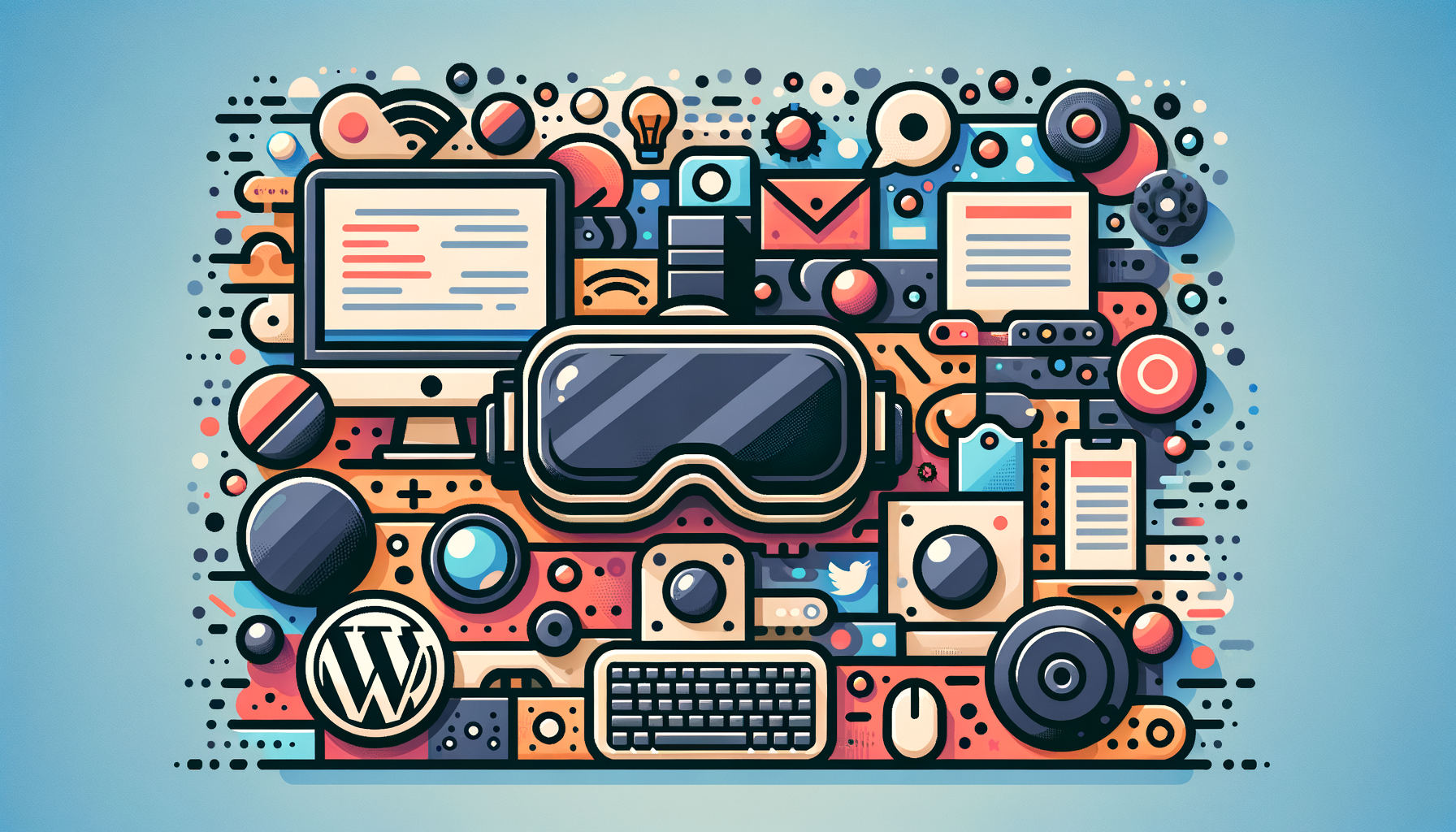
Transforming User Engagement: The Impact of Virtual Reality on WordPress Development
As we approach 2025, the landscape of web development is undergoing a significant transformation, driven in part by the integration of Virtual Reality (VR) and Augmented Reality (AR) technologies. WordPress, being the dominant content management system powering 43% of all websites globally, is at the forefront of this revolution.
Enhancing User Experience with Immersive Technologies
VR and AR are set to redefine the way users interact with websites, offering immersive and interactive experiences that blur the lines between the digital and physical worlds. For instance, in the travel industry, VR enables users to explore destinations virtually, fostering a sense of wanderlust and excitement. This technology can be applied similarly to various sectors, including e-commerce, education, and real estate, where users can virtually try on clothes, explore 3D models, or take virtual property tours.
E-commerce and Retail
In e-commerce, VR can revolutionize the shopping experience by allowing customers to virtually try on products or visualize furniture in their homes. Platforms like Shopify are already incorporating AR product previews, and by 2025, this is expected to become a standard feature across website builders.
Education and Training
Educational websites can benefit from VR by offering virtual field trips, interactive 3D models, and immersive learning experiences. This not only enhances user engagement but also provides valuable data on user behavior and preferences, which can be used to optimize educational content.
Technical Challenges and Solutions
Integrating VR and AR into WordPress sites comes with several technical challenges, but there are also robust solutions available.
Complex Integration
Combining VR and AR technologies with existing online platforms requires complex technical integration. Ensuring seamless interoperability between AI-driven systems and VR interfaces is crucial. Companies like ColorWhistle offer integrated development environments that facilitate stable integration of these technologies into existing platforms.
Website Loading Times
VR content is data-intensive and can impact website loading times and performance. Advanced optimization techniques, such as compression and lazy loading, can minimize loading times without compromising visual quality. For example, hosting services like Kinsta can provide the necessary infrastructure to support high-performance websites.
Cross-platform Compatibility
Ensuring compatibility across various devices, browsers, and platforms is essential for delivering VR experiences seamlessly. Responsive interfaces that adapt to different screen sizes and input devices can ensure compatibility and accessibility of VR experiences across various devices and platforms.
Optimizing WordPress for VR Integration
To fully leverage the benefits of VR integration on your WordPress site, several optimizations can be made:
Leveraging Full Site Editing
WordPress’s Full Site Editing feature, part of the Gutenberg project, offers more visual and interactive drag-and-drop customization. This allows for site-wide template development and modification, which can be particularly useful for integrating VR and AR content.
Integrating AI and Machine Learning
AI and machine learning can enhance the VR experience by providing personalized recommendations, automating tasks, and offering data-driven insights. For example, AI-powered plugins can assist in creating SEO-minded blogs, block spam comments, and optimize content tags and categorization.
Utilizing Advanced Plugins
The WordPress plugin ecosystem is thriving, with over 60,000 free plugins available. Developers are exploring ways to integrate AI, VR, and AR into these plugins. For instance, plugins that support WebAssembly, headless WordPress, and GraphQL can make WordPress more powerful and efficient for VR integration.
Case Studies and Real-World Examples
Several organizations are already leveraging VR and AR to enhance user engagement on their WordPress sites.
Real Estate Sector
Real estate platforms are using VR to offer virtual property tours, allowing potential buyers to explore properties remotely. This not only enhances the user experience but also reduces the need for physical visits, making the home-buying process more efficient.
Educational Sector
Educational institutions are creating VR tours and interactive 3D models to enhance learning experiences. For example, virtual field trips can be conducted using VR, providing students with immersive and interactive educational content.
Future Outlook and Best Practices
As we move into 2025, the integration of VR and AR into WordPress will continue to evolve. Here are some key takeaways and best practices:
Embrace Emerging Technologies
WordPress developers should be ready to adopt emerging technologies like VR, AR, and AI to stay ahead in the competitive digital market. Integrating these technologies can enhance user engagement, improve performance, and offer innovative solutions.
Optimize for Performance
Ensure that your WordPress site is optimized for performance to support VR content. This includes using high-performance hosting services, advanced optimization techniques, and ensuring cross-platform compatibility.
Focus on User Experience
The primary goal of integrating VR and AR should be to enhance user experience. Focus on creating immersive and interactive content that engages users and provides valuable insights into their behavior and preferences.
Conclusion and Next Steps
The integration of VR into WordPress is set to revolutionize the web development landscape, offering unparalleled user engagement and immersive experiences. To prepare for this future, consider the following steps:
- Optimize Your Site: Ensure your WordPress site is optimized for performance and compatibility with VR content.
- Leverage Advanced Plugins: Utilize plugins that support AI, VR, and AR integration.
- Stay Updated: Keep abreast of the latest trends and technologies in web development.
For expert guidance on optimizing your WordPress site for VR integration, you can Contact Us at Belov Digital Agency, where our team of experts is ready to help you leverage the full potential of these cutting-edge technologies.
In summary, the future of WordPress development is dynamic and innovative, with VR and AR playing a pivotal role in enhancing user engagement and providing immersive experiences. By embracing these technologies and optimizing your site accordingly, you can deliver exceptional user experiences and stay ahead in the competitive digital market.













